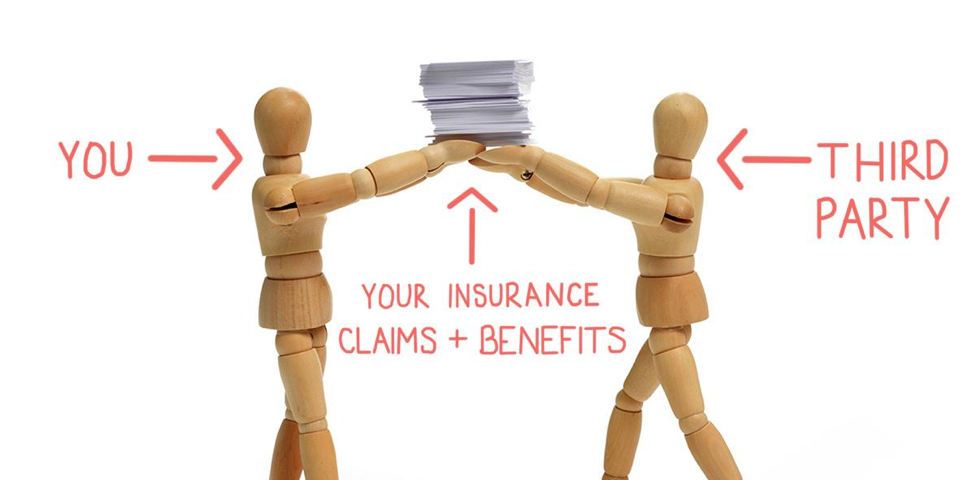A: I don’t think there is anyone who wasn’t aware how hot the real estate market was since the beginning of Covid, and the frenzied buying characteristic of that time. I’ve often wondered, “Why do humans panic so much, and who started the fear and supplied the response to that fear?” I’m sure many a forest was cleared to produce the paper needed for the consumption of toilet paper that was purchased. And what about hand sanitizer? With hurricanes we see water flying off the shelves and gas being purchased in amounts that could sustain a small town, let alone a single family. This is what happened with the housing market. Someone “Started the fire” as singer Bill Joel wrote in his song, and before you know it the real estate market took off to heights seldom seen before. Now that we’ve all taken a breath and realized Florida isn’t closing its borders to people looking to relocate from the north to purchase a home, we are all settling back to the normal real estate trends. We typically see fewer buyers this time of year as people are just starting to return from their summer getaways, and children are engrossed in school activities. The start of the typical “hot seasonal market” starts in January and runs throughout the late spring and early summer. The slowdown you are currently seeing with fewer buyers in the market is a stark contrast to what we’ve seen with the panic buying the past couple of years, but the sky isn’t falling.
Yes, interest rates will play a role for some, but keep in mind those that purchased homes the past few years paid cash or borrowed around 50%. Those that purchased did so as a permanent move, and not so much as an investment. We don’t see short sales and defaults due to sub prime mortgage lending. In short we don’t see a market crash. In fact we see well priced properties continue to be in hot demand as this part of Florida offers a more affordable way of life than many other areas around the state or country.
What I am hearing is some people who are “hurricane weary” saying they are considering a move, as they don’t want to go through another storm and the cleanup aftermath. If you are one of them, before you do anything please give us a call. This is not a solicitation to list your home and to wish you much success on your move, but to help you decide if making a move is really going to give you the peace of mind and enjoyment you are seeking. People buy and sell real estate on emotion, and that emotional desire is different for everyone. There isn’t an area in the country that isn’t impacted by one form of catastrophic weather or another, but there is a reason you came to Florida. The two pieces of advice we would give anyone giving serious thought to a move would be 1. Research the area you are considering and determine if it really provides you all the things that meet your interests, and not just an emotional escape. 2. Know the value of your home. When Hurricane Charley impacted us there were countless stories of people coming in and preying on the emotions of those most severely impacted, especially the elderly. They agreed to accepting extremely low offers and in some cases even signed over their insurance benefits. Our goal is, and always has been, to give honest advice and insight to the market. If a move is a serious consideration, make sure it is for all the right reasons. Who knows, you may find in a short time your current home and community in which you live offers you the best quality of life you’ve been seeking.
 Having been a Realtor for 18 years, we’ve helped many clients over those years navigate inspection reports and repairs so they can enjoy a smooth closing. We’ve learned a great deal from inspectors and contractors alike, and the difference between a repair and replacement. So you can imagine my frustration when our insurance field adjuster went on our 18-year-old roof and after surveying all the broken tiles said, “This can be repaired.” When I asked him about all the loose tiles he missed he replied, “Let me know if you see anything and I’ll add it to my report.” Anyone who knows me, knows I don’t like heights. Unless my roof was the height of my dining room table I wasn’t going to climb my roof to point out all the tiles he missed….thus began my “Art of War.”
Having been a Realtor for 18 years, we’ve helped many clients over those years navigate inspection reports and repairs so they can enjoy a smooth closing. We’ve learned a great deal from inspectors and contractors alike, and the difference between a repair and replacement. So you can imagine my frustration when our insurance field adjuster went on our 18-year-old roof and after surveying all the broken tiles said, “This can be repaired.” When I asked him about all the loose tiles he missed he replied, “Let me know if you see anything and I’ll add it to my report.” Anyone who knows me, knows I don’t like heights. Unless my roof was the height of my dining room table I wasn’t going to climb my roof to point out all the tiles he missed….thus began my “Art of War.” How do you know which roofer is being honest with you and not just looking to gouge the insurance company, when all you need is a repair? What about all the other damage to your pool cage or other items that were destroyed? It starts with having a good insurance broker who can guide you through the claims process. Then if you aren’t fortunate enough to get an adjuster who is keeping your best interests in mind, you have to get as many opinions and references as possible before signing anything. Whatever you do, don’t sign over your benefits, otherwise known as A.O.B., and not to be confused with New York Congresswoman A.O.C.
How do you know which roofer is being honest with you and not just looking to gouge the insurance company, when all you need is a repair? What about all the other damage to your pool cage or other items that were destroyed? It starts with having a good insurance broker who can guide you through the claims process. Then if you aren’t fortunate enough to get an adjuster who is keeping your best interests in mind, you have to get as many opinions and references as possible before signing anything. Whatever you do, don’t sign over your benefits, otherwise known as A.O.B., and not to be confused with New York Congresswoman A.O.C. A.O.B. is the acronym for “Assignment Of Benefits” and some people have unwittingly fallen victim to signing these over to a third party, who can be a roofing contractor or someone claiming to be working in your best interests. For those of you unfamiliar with the process, by signing over your claim benefits you are now on the outside looking in as all decisions and reimbursements will be going to the third party. You are no longer in control of your insurance benefits or reimbursements. In Florida, you do have a 14-day rescission period in which to cancel that agreement, but it is best to seek the advice of an attorney or your insurance broker before signing anything. Some people will automatically engage the services of a public adjuster to fight their battles. I look at this as more the last option than my first. Public adjusters on average will make ten percent of the total claim. If the insurance company doesn’t reimburse you enough to cover their “commission” you are on the hook. If you have a deductible of $5,000-10,000 and you have $60,000-100,000 in damages, and the insurance company is only looking to cover the cost for damages and nothing more, you could be out of pocket another $6,000-10,000 on top of your deductible. Another thing to consider is the contract you are signing with a roofer. Are you bound to them regardless of whether they get enough money to complete your roof repair or replacement, or are you responsible to make up the difference? Questions you need to ask aside from getting a quote and an estimated time of completion to complete the job are 1. Is there a cancellation period in the contract should I decide to terminate this agreement? 2. Am I bound to you if the insurance company is unwilling to agree to your estimate?
A.O.B. is the acronym for “Assignment Of Benefits” and some people have unwittingly fallen victim to signing these over to a third party, who can be a roofing contractor or someone claiming to be working in your best interests. For those of you unfamiliar with the process, by signing over your claim benefits you are now on the outside looking in as all decisions and reimbursements will be going to the third party. You are no longer in control of your insurance benefits or reimbursements. In Florida, you do have a 14-day rescission period in which to cancel that agreement, but it is best to seek the advice of an attorney or your insurance broker before signing anything. Some people will automatically engage the services of a public adjuster to fight their battles. I look at this as more the last option than my first. Public adjusters on average will make ten percent of the total claim. If the insurance company doesn’t reimburse you enough to cover their “commission” you are on the hook. If you have a deductible of $5,000-10,000 and you have $60,000-100,000 in damages, and the insurance company is only looking to cover the cost for damages and nothing more, you could be out of pocket another $6,000-10,000 on top of your deductible. Another thing to consider is the contract you are signing with a roofer. Are you bound to them regardless of whether they get enough money to complete your roof repair or replacement, or are you responsible to make up the difference? Questions you need to ask aside from getting a quote and an estimated time of completion to complete the job are 1. Is there a cancellation period in the contract should I decide to terminate this agreement? 2. Am I bound to you if the insurance company is unwilling to agree to your estimate? While I’ve been sharing my experience with a roofer and an insurance company that seems more concerned with their interests than helping us through this time, there is a reason many of you may be experiencing what we are. Ask any insurance broker how many questionable claims for new roofs were submitted years after Hurricane Irma impacted Florida. They’ve shared with us the weather-related causes we just didn’t experience, but that it was cheaper to pay the claim than battle in court. As a result, insurance companies are now insuring roofs for less time than the projected lifespan from the manufacturer. On average, an insurance company will insure a shingle roof for 10-15 years, a tile roof for 20-25 years, and a metal roof for 25-30 years before requiring you to replace it to continue coverage. The question becomes, “Is the insurance company looking to “repair” when you need a replacement, knowing in a few short years you’ll need to incur the cost of replacement yourself?” The important thing to keep in mind is to get several estimates from respectable contractors who have good reviews and standing with the Better Business Bureau. For those living in the general area, you can always reach out to the Charlotte Desoto Building Industry Association otherwise known as the CDBIA. They are comprised of local contractors, lenders, and related trades and services that can give you guidance and resources when needed. While none of us want to wait for a prolonged period to get our homes put back together, don’t feel pressured to sign a contract until you’ve thoroughly researched the company and the contract. Our understanding is you have up to a year to file a claim, but check with your insurance broker to verify the details of your policy.
While I’ve been sharing my experience with a roofer and an insurance company that seems more concerned with their interests than helping us through this time, there is a reason many of you may be experiencing what we are. Ask any insurance broker how many questionable claims for new roofs were submitted years after Hurricane Irma impacted Florida. They’ve shared with us the weather-related causes we just didn’t experience, but that it was cheaper to pay the claim than battle in court. As a result, insurance companies are now insuring roofs for less time than the projected lifespan from the manufacturer. On average, an insurance company will insure a shingle roof for 10-15 years, a tile roof for 20-25 years, and a metal roof for 25-30 years before requiring you to replace it to continue coverage. The question becomes, “Is the insurance company looking to “repair” when you need a replacement, knowing in a few short years you’ll need to incur the cost of replacement yourself?” The important thing to keep in mind is to get several estimates from respectable contractors who have good reviews and standing with the Better Business Bureau. For those living in the general area, you can always reach out to the Charlotte Desoto Building Industry Association otherwise known as the CDBIA. They are comprised of local contractors, lenders, and related trades and services that can give you guidance and resources when needed. While none of us want to wait for a prolonged period to get our homes put back together, don’t feel pressured to sign a contract until you’ve thoroughly researched the company and the contract. Our understanding is you have up to a year to file a claim, but check with your insurance broker to verify the details of your policy.
 While most people would like to talk about themselves, Gary and Gail have always put their clients first, and their diverse backgrounds have provided their clients an unparalleled level of service and knowledge throughout the past years.
While most people would like to talk about themselves, Gary and Gail have always put their clients first, and their diverse backgrounds have provided their clients an unparalleled level of service and knowledge throughout the past years.